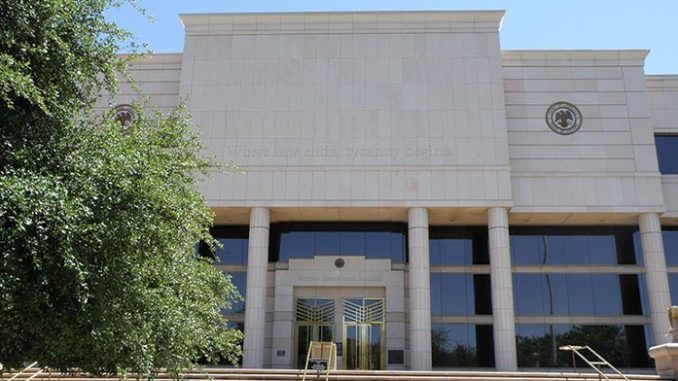
The Arizona Court of Appeals ruled Tuesday that a man convicted in 2019 of aggravated assault and endangerment is entitled to a new trial due to “fundamental, prejudicial error” caused by a Maricopa County prosecutor who repeatedly commented to jurors about the man’s decision to not answer a detective’s questions.
Giovani Fuster Melendez’s trial attorney and the trial judge overlooked the prosecutor’s inappropriate comments at the time, and Melendez would go on to be sentenced to 7.5 years in prison for one count of aggravated assault and five counts of endangerment.
But the July 25 appellate opinion authored by Judge Michael J. Brown notes it “would be inconsistent” with decades of case law and the 14th Amendment to penalize Melendez for exercising his post-Miranda Warning right not to answer questions.
“The State used Melendez’s partial silence against him during cross-examination and in closing arguments, which violated his right to due process,” Brown wrote. “The prosecutor’s improper focus penalized Melendez for exercising his right not to answer some of the detective’s questions and created fundamental error.”
According to court records, Melendez was identified by two witnesses as the man who fired several rounds from a handgun at the son of Melendez’s mother’s pastor. The pastor’s son was not hit, but investigators found bullets marks on the outside wall of a nearby apartment.
A family of five were inside the apartment when the shooting occurred, the records show.
Melendez filed a notice of appeal of his conviction in January 2020, but his appellate attorney advised the Court of Appeals there was “no meritorious grounds for reversal.” However, that was not the end of the matter.
The Court of Appeals is obligated to do its own review of the trial record for possible reversible error, even though the review looks at the evidence “in the light
most favorable to sustaining the convictions and resolving all reasonable inferences against Melendez,” Brown wrote.
It was during the appellate review that the three-judge panel ordered the parties to submit briefs on whether the references during the trial by the Maricopa County Attorney’s Office about Melendez’s initial refusal to answer some of the detective’s questions violated his constitutional rights.
Melendez then had the burden to show any error established a prejudice to the case that could only be resolved by reversal of the conviction and a new trial.
“He must show that without the error, a reasonable probability exists he ‘could have’ received a different verdict,” Brown wrote.
Shortly after the shooting, a detective told Melendez “she wanted to get” his side of the story. She recited the Miranda Warning to Melendez after he was taken into custody but before he was formally arrested.
Melendez answered a number of the detective’s general questions during the 30-minute interview, but he continually refused to talk about the shooting or his relationship with the pastor or pastor’s son. At one point, the detective acknowledged to Melendez it was his “right” to not answer questions.
When told he was going to be arrested for the shooting, Melendez became more forthcoming with the detective. He claimed the pastor’s son was the aggressor and that Melendez only fired his gun in reaction to believing his life was in danger.
At trial, the pastor’s son and a witness disputed Melendez’s version of events. Melendez also took the stand and again insisted he fired in self-defense.
The prosecutor pressed Melendez during cross-examination about the “10 or 11 times” during the police interview when he declined to answer questions. The prosecutor also used closing arguments to highlight the fact Melendez remained silent about the shooting until advised he was going to be arrested.
But the Miranda Warning implicitly assures a suspect his or her silence will carry no penalty, Brown wrote in the opinion.
Silence, he added, “is the exercise of a constitutional right without qualification and allowing the prosecutor to use that fact at trial would make the assertion of the
right costly.” And the reason for a defendant’s “selective silence” during an interview or interrogation “does not alter” the inherent right to due process, according to the opinion.
Melendez’s appeal was also bolstered by the impact the prosecutor’s prohibited comments may have had on the jury’s opinion of his credibility and thus on his self-defense claim.
“By repeatedly pointing out on cross-examination that Melendez declined to answer many questions bearing directly on the issue of self-defense, Melendez’s credibility was undermined by the prosecutor’s impermissible references,” according to the opinion. “Because the error was prejudicial, we reverse Melendez’s convictions and sentences and remand for a new trial.”
The order for a new trial is not effective for 30 days, to allow the State -either the Maricopa County Attorney’s Office or Arizona Attorney General’s Office- time to decide whether to petition the Arizona Supreme Court for review of the decision.
